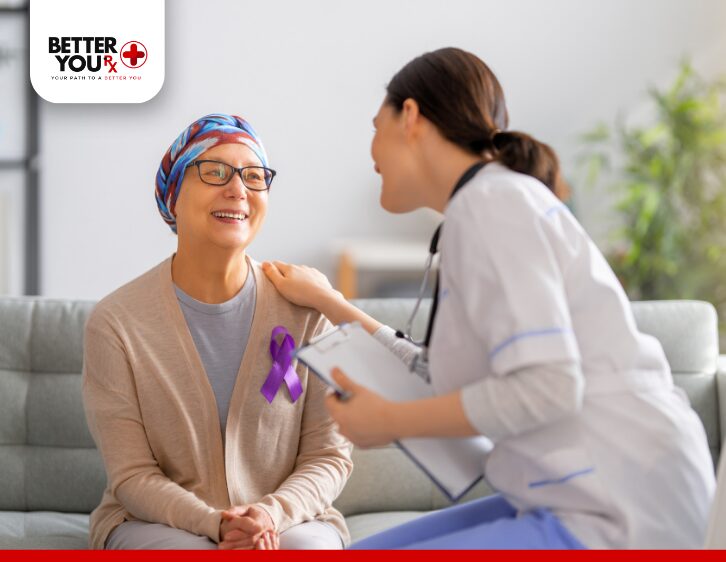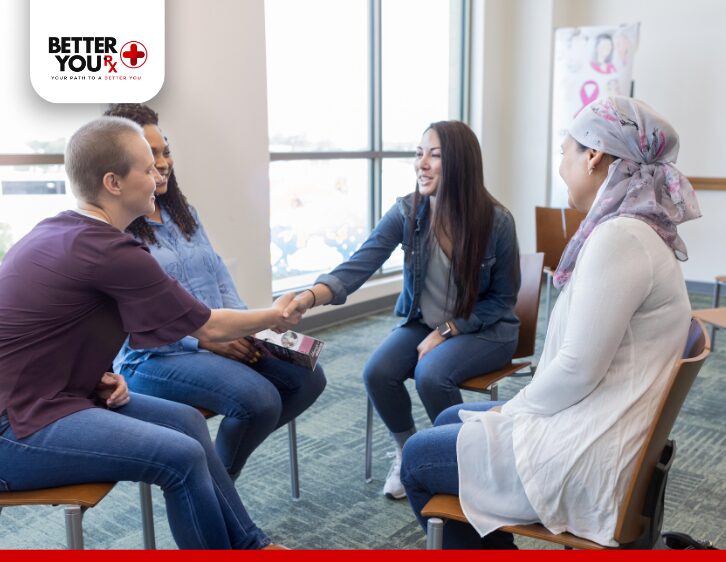The Importance of a Strong Support System in Cancer Care
Cancer is a life-altering diagnosis that can affect not only the individual but also their loved ones. Navigating the journey of cancer care often feels overwhelming, with many emotional, physical, and psychological hurdles to overcome. While medical treatments such as chemotherapy, radiation, or surgery are vital to the healing process, the significance of a robust support system cannot be underestimated. A supportive network of family, friends, healthcare professionals, and community resources is essential for helping cancer patients cope with the challenges of their diagnosis and treatment.
A strong support system provides the emotional, physical, and psychological reinforcement that cancer patients need to maintain hope, resilience, and a sense of control. In this article, we’ll explore why having a support system in place is crucial during cancer care, how it can impact recovery, and what forms it may take.
Emotional and Psychological Support

One of the most profound impacts of cancer is the emotional toll it takes. A cancer diagnosis often brings about feelings of fear, sadness, anxiety, and uncertainty about the future. During such a time, having a supportive circle of people to talk to can significantly improve mental health. Friends and family members provide a listening ear, helping patients process their emotions and fears. Just knowing there are people who care and are willing to support you can offer immense comfort.
Moreover, a strong support system can reduce feelings of isolation and loneliness. Many cancer patients feel detached from others because their friends and family might not fully understand what they are going through. By being able to connect with loved ones or even other cancer patients, individuals can gain insight, share experiences, and realize they are not alone.
Psychologically, knowing that a support system is in place can help patients manage stress better. Constant support can build resilience, making it easier to cope with the unpredictable nature of cancer treatments and potential setbacks. Encouragement from family and friends also increases a cancer patient’s self-esteem and sense of worth, which are essential for maintaining mental well-being during such a challenging journey.
Practical Assistance with Daily Tasks

The demands of cancer treatment can make daily life feel overwhelming. The side effects of treatments like chemotherapy and radiation can leave patients feeling weak, tired, or nauseous. This is where a support system becomes invaluable in providing practical assistance. Family members and friends can help with household chores, grocery shopping, transportation to and from medical appointments, and preparing meals.
The physical and emotional strain of cancer treatment can take a toll on a patient’s ability to manage everyday tasks. Having someone to rely on to help with these responsibilities allows the patient to focus on their health and recovery. For some individuals, having this practical support is essential in reducing stress and managing the challenges of living with cancer. This assistance ensures the patient doesn’t have to go through their treatment alone and can focus on getting better rather than worrying about how to meet basic needs.
Financial and Logistical Support
Cancer treatment is often expensive, even with insurance. The costs associated with surgeries, medications, and outpatient care can add up quickly. Financial support from loved ones can alleviate some of this burden. Additionally, friends and family can help by researching financial assistance programs or insurance coverage options that may ease the cost of treatment.
Beyond financial support, a reliable support system can also offer practical, day-to-day assistance. Some patients may have difficulty navigating medical appointments, coordinating treatments, or understanding complex medical terminology. Loved ones who can help with these tasks often serve as advocates, ensuring the patient receives the best care possible and isn’t overwhelmed by the logistics of treatment.
Support Groups and Cancer Advocacy Organizations

In addition to support from family and friends, cancer patients can gain valuable emotional and social benefits through participation in cancer support groups. Many hospitals and community organizations provide spaces for cancer patients to connect with others facing similar challenges. In these groups, individuals can discuss their experiences, share advice, and receive guidance from others who truly understand their struggles.
Cancer advocacy organizations can also play a vital role in offering resources, educational materials, and financial aid. These groups can connect patients with counselors, nutritionists, or other healthcare providers to help manage the physical, emotional, and practical aspects of cancer care. Furthermore, they often offer workshops or educational sessions about coping strategies, treatment options, and alternative therapies.
Support groups can provide both in-person and online options, allowing patients to access help no matter where they are located. For those with limited mobility or in more rural areas, online support can be a lifeline, allowing them to build relationships and gain emotional support from others worldwide.
The Role of Healthcare Professionals in the Support System
While family, friends, and support groups play an important role, healthcare professionals are also key components of a cancer patient’s support system. A multidisciplinary approach to cancer care, which involves oncologists, nurses, social workers, and therapists, can provide holistic support to the patient. These professionals are essential in helping to manage treatment side effects, provide pain relief, offer counseling, and ensure that the patient is well-informed about their care.
Oncologists and other specialists can guide the patient through their treatment options and help them understand the potential outcomes. Nurses often serve as the first point of contact for addressing medical concerns or side effects. Social workers are there to provide emotional support, help with mental health concerns, and assist in practical matters such as accessing financial assistance or housing resources. By having a dedicated team of professionals, cancer patients can feel more secure in their treatment journey.
The Importance of Encouraging Self-Care
While external support is critical, patients should also be encouraged to engage in self-care activities. A strong support system can guide and motivate cancer patients to engage in healthy lifestyle practices, such as eating well, staying hydrated, exercising (as tolerated), and practicing stress-relieving activities like meditation or yoga. Encouragement from loved ones can reinforce the importance of self-care, and sometimes, family members can join in these activities, making them more enjoyable and helping to build a positive routine.
Promoting self-care in conjunction with the other forms of support not only improves the patient’s well-being but also boosts their sense of agency and independence. Feeling in control of their health and recovery can be empowering for cancer patients, providing them with the strength they need to keep pushing forward.
Conclusion
Cancer is undoubtedly one of the most challenging experiences a person can go through, but a strong support system can make all the difference in the world. The emotional, practical, financial, and psychological support provided by family, friends, healthcare professionals, and support groups helps patients navigate the complexities of their diagnosis and treatment. With a strong network in place, cancer patients are better equipped to face the physical and emotional challenges of their illness, ultimately enhancing their ability to cope and improve their overall quality of life.
If you or someone you know is going through cancer treatment, it’s important to remember that support is vital. Whether through friends, family, healthcare professionals, or cancer advocacy organizations, a well-rounded support system is an invaluable asset that can make the journey less daunting and provide the hope and encouragement needed for a better tomorrow.





